
Written By: Owennie Lee, RD
Title: Registered Dietitian
Alumni: University of British Columbia
Last Updated on:

In our recent article BPA in Foods: How to Avoid It, we discussed the ubiquitous presence of bisphenol-A (BPA). The December 2009 issue of Consumer Reports recommends choosing fresh or frozen food products whenever possible, but does that mean all canned foods are out of the question? Fortunately, some manufacturers have responded to the consumer demand by switching over to BPA-free cans.
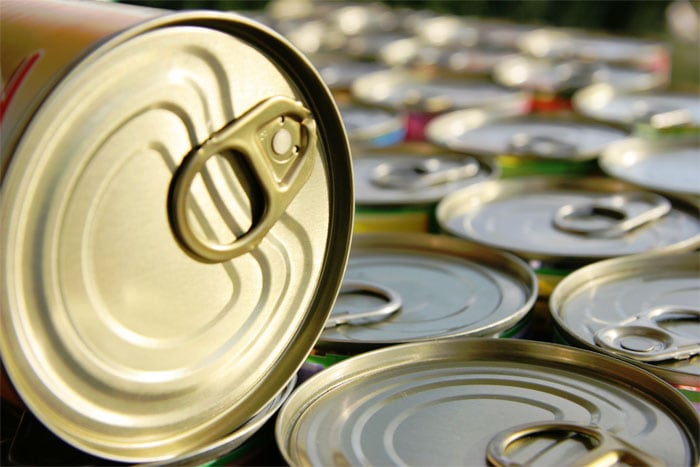
Table of Contents
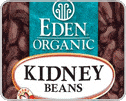 Apparently, the quest for BPA-free cans did not just start recently. In fact, Eden Foods founder Mike Potter states on the company’s website that they have been using BPA-free cans since 1999. Their switch to BPA-free cans started in 1997, when Potter realized that BPA, which was widely used in the lining of cans, had been called into question for its safety. After spending two years working with his can suppliers in search for alternatives, Potter finally found a solution that is BPA-free – steel cans coated with an enamel made from vegetable resins. Despite the higher manufacturing cost, Potter decided to switch to these BPA-free cans. At the moment, all 33 of Eden Foods’ Organic Beans varieties, including chili, can be found in BPA-free cans. Their tomato products, however, are still packaged in BPA-containing cans, as “the FDA hasn’t approved any other type of can lining for highly acidic foods,” Potter says.
Apparently, the quest for BPA-free cans did not just start recently. In fact, Eden Foods founder Mike Potter states on the company’s website that they have been using BPA-free cans since 1999. Their switch to BPA-free cans started in 1997, when Potter realized that BPA, which was widely used in the lining of cans, had been called into question for its safety. After spending two years working with his can suppliers in search for alternatives, Potter finally found a solution that is BPA-free – steel cans coated with an enamel made from vegetable resins. Despite the higher manufacturing cost, Potter decided to switch to these BPA-free cans. At the moment, all 33 of Eden Foods’ Organic Beans varieties, including chili, can be found in BPA-free cans. Their tomato products, however, are still packaged in BPA-containing cans, as “the FDA hasn’t approved any other type of can lining for highly acidic foods,” Potter says.
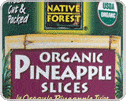 Native Forest’s spokesperson Joanna Freet confirmed that most of Native Forest’s fruit and vegetable products are packaged in BPA-free cans.
Native Forest’s spokesperson Joanna Freet confirmed that most of Native Forest’s fruit and vegetable products are packaged in BPA-free cans.
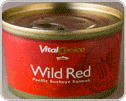 Vital Choice’s corporate website claims that all Vital Choice fish cans and pouches are free of BPA. However, according to the December 2009 issue of Consumer Reports, BPA was detected in their products.
Vital Choice’s corporate website claims that all Vital Choice fish cans and pouches are free of BPA. However, according to the December 2009 issue of Consumer Reports, BPA was detected in their products.
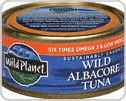 According to Wild Planet Foods’ website, two of their products, Wild Planet Albacore Tuna and Skipjack Light Tuna, are packaged in BPA-free cans. The company apparently has plans to move their sardine and salmon products to BPA-free cans in the near future. However, products that use citric acid in processing, such as their Wild Pink Shrimp, cannot be canned without using a BPA-containing special lining.
According to Wild Planet Foods’ website, two of their products, Wild Planet Albacore Tuna and Skipjack Light Tuna, are packaged in BPA-free cans. The company apparently has plans to move their sardine and salmon products to BPA-free cans in the near future. However, products that use citric acid in processing, such as their Wild Pink Shrimp, cannot be canned without using a BPA-containing special lining.
 So far, the only Oregon’s Choice product in BPA-free cans is their 6 oz. lightly salted albacore. The company’s website says that in the summer of 2010 they will start canning all of their albacore in BPA-free cans, with the goal of moving towards BPA-free cans for all canned products within two years.
So far, the only Oregon’s Choice product in BPA-free cans is their 6 oz. lightly salted albacore. The company’s website says that in the summer of 2010 they will start canning all of their albacore in BPA-free cans, with the goal of moving towards BPA-free cans for all canned products within two years.
The Bottom Line
Currently, quite a few options do exist for BPA-free canned beans, seafood, fruit, and vegetable products. As the demand for BPA-free food packaging continues to grow, we can expect to see more manufacturers switching over to BPA-free cans. However, for acidic foods such as tomato products, Dr. Alan Greene, author of the book Feeding Baby Green suggests using fresh or frozen, or glass jars and cartons if you must choose a packaged version.
Alumni: University of British Columbia – Owennie is a registered dietitian with a soft spot for chocolate and coffee. She is a believer in balance and moderation, and is committed to keeping healthy eating enjoyable and fun. Owennie received her dietetics training in Vancouver, and is a member of Dietitians of Canada and the College of Dietitians of British Columbia. She has experience in a wide variety of settings, such as clinical nutrition, long-term care and outpatient counseling. Owennie has also worked for a community nutrition hotline and participated regularly as a guest radio host, where she enjoyed sharing her passion and knowledge about food and nutrition with people.
bpa, canned foods, food safety